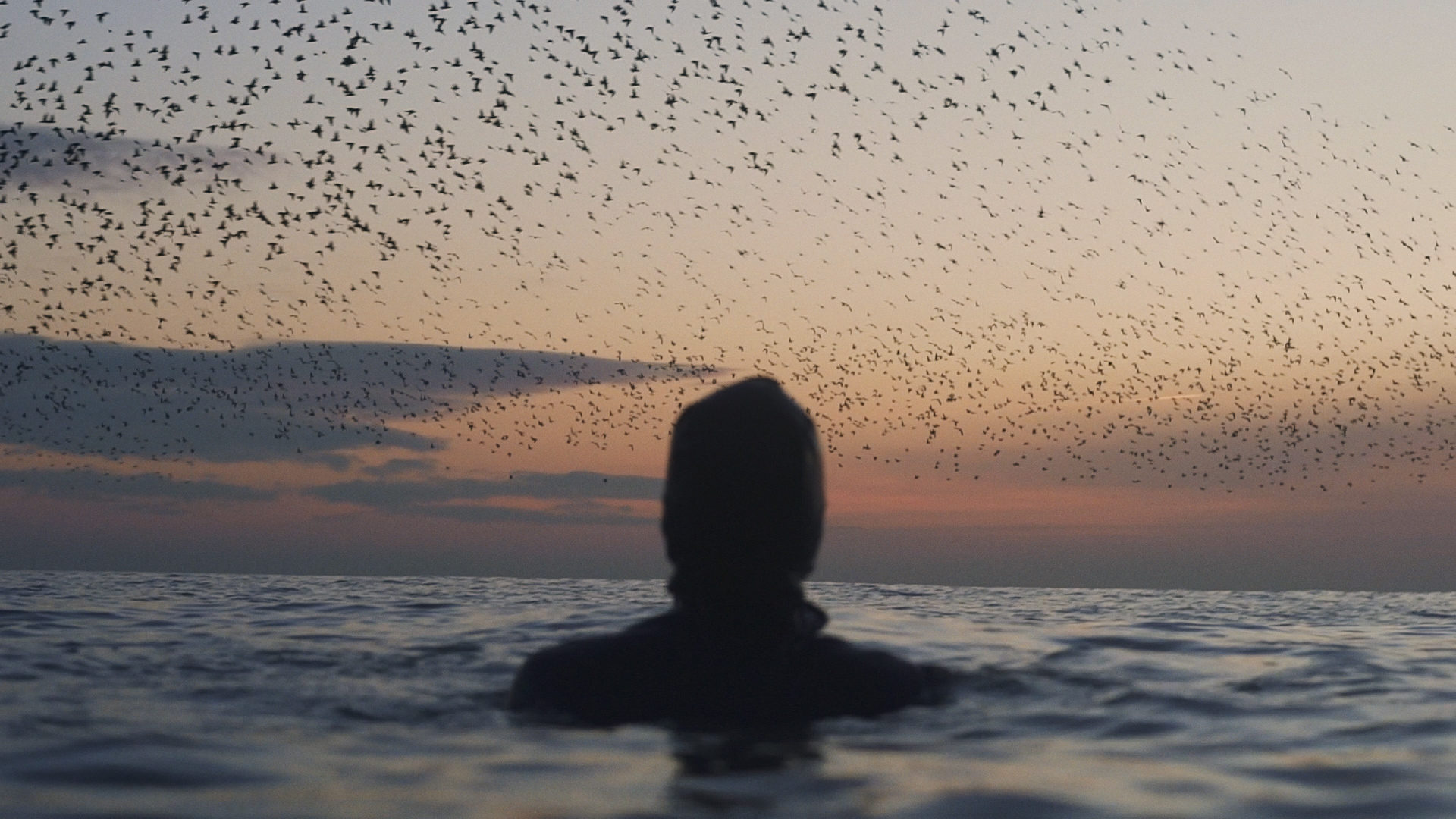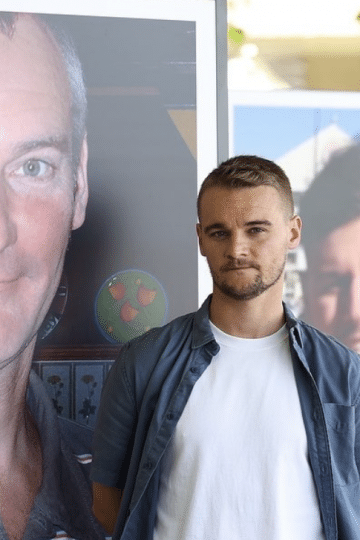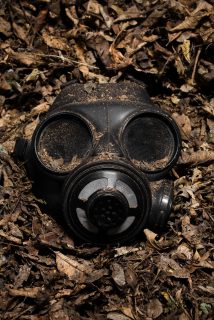Can swimming help treat your anxiety?
Mental Health
Author and journalist Joe Minihane found himself battling anxiety, depression and loneliness. But rather than sink, he chose to swim (in some of Britain's coldest rivers). Here, he recounts his inspiring journey, fuelled by determination and a hot flask of tea...
Living with a mind that is predisposed to endless, churning worry is tedious, frustrating and often debilitating. My anxiety is something that I have come to terms with over the past few years, but that doesn’t mean it’s gone away. Rather, I’ve become better at recognising when the spiral is beginning and knowing what I can do to rein it in.
For me, that’s swimming. And specifically, swimming in cold water, or wild swimming. When I get into the sea on a February morning for the briefest of immersions, or swim countless lengths of my local (unheated) lido in July, my mind becomes placid and I enter what therapists call a ‘flow state’. At that point, nothing else matters. My mind stills and I return to my breathing, making sure I’m moving my arms and kicking my legs.
Drowning in my own anxiety
I found out swimming was my main coping mechanism for anxiety by mistake. On a hot August afternoon, my wife and I went for a dip at the mixed bathing pond on Hampstead Heath in London. Lowering myself down the metal rungs of the ladder and into the green waters of the pond and swimming the 80 metres to the far rope, I felt something akin to a chemical high. I closed my eyes and the sun throbbed red and yellow. I felt calm and centred for the first time in years.
At this point, I hadn’t told anyone about the struggle I was having with my mental health. I thought it was normal to wake for hours at a time and think about the minutiae of my working life, desperate to believe that going freelance and working alone wasn’t a terrible mistake; to spend hours telling myself I was a failure as a partner, son and friend; to feel guilty for taking time off; to be irritable and stressed for hours over the smallest things, from a spilled glass of water to a late running Tube. I was endlessly stressed and never not worried. Not talking about it meant I finally slumped into depression. The only thing that kept me going was the thought of a quick dip in a cold lake, river or pond.
After that first swim at Hampstead, I kept returning. I started swimming in Tooting Bec Lido. And then I read Waterlog by Roger Deakin. Deakin was a naturalist and an eccentric who lived in a moated farmhouse in rural Suffolk. His book charted a long journey he took around the UK, swimming everywhere from the bays of the Isles of Scilly to the whirlpools of the Inner Hebrides. I loved swimming locally, but wanted something that would give me a sense of purpose, as well as helping me swim in new places. And so I set off on a bid to retrace Deakin’s trip.
Above: Waterlog, a short documentary about Joe Minihane and his battle with anxiety.
Learning to be honest with myself
Initially, the swims helped to ameliorate my anxiety and I began to feel less stressed, capable of living my day to day life without being worried all of the time. I spent a year trailing Deakin before my anxiety flared up again following a bike accident which left my arm in plaster, meaning I was unable to swim.
It was at this point I finally opened up and sought professional help. Going to talking therapy in the weeks when I couldn’t swim was life changing. I was able to put my worries and anxieties into perspective and, with some gentle cajoling, learn to see things objectively. It didn’t stop me feeling anxious, or beating myself up, but it did help me recognise when I was doing it. I began to meditate as a way of tapping into that feeling I got when I was in the water when going for a dip wasn’t always possible.
When my arm was cut free, I went back to the water feeling much more balanced, happier for having opened up. I realised that swimming was an important part of the equation, but not the whole sum. Living with anxiety meant being honest about how I was feeling, as well as looking to the things that made me feel better.
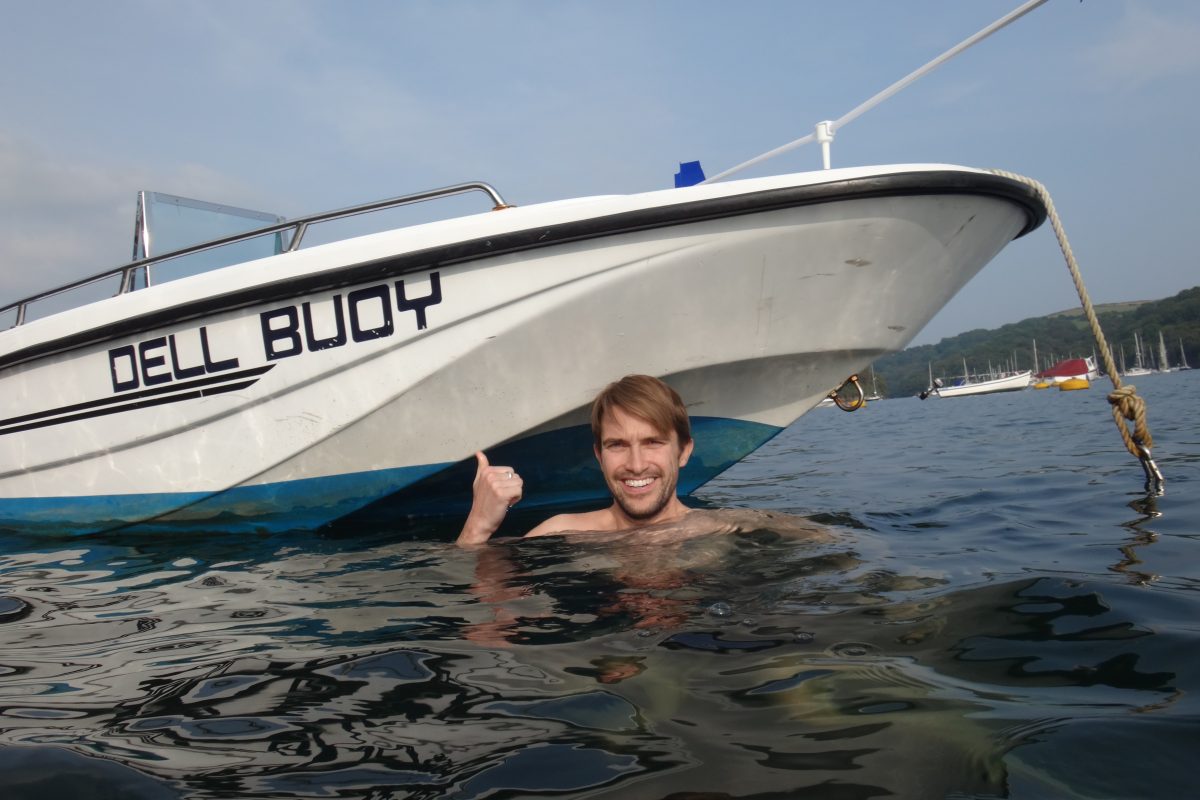
Chasing a new endorphin rush
I started up my journey again, retracing Roger Deakin’s path across the UK. It took two and a half years and the trip became something of a celebration – I learned that being outdoors, not just in the water, was vital to my sense of wellbeing. I realised that my life as a freelance writer made me lonely, and so arranged swims with friends who were always willing to join. We swam in lakes in Snowdonia, dropped into gorges in Yorkshire and waded into rivers beneath ancient ruins.
Also, I wrote about my journey as a way of making peace with my anxiety and showing others that it can be eased, if not conquered. Floating, the book about my swims and anxiety, came out in paperback earlier this year. I’m currently working with a filmmaker on a documentary about swimming and anxiety, which has taken me to new places and back to favourite swimming holes.
This winter, my anxiety flared up again. I live in Brighton now and on clear days, when I was cooped up and losing myself in a train of anxious thought, I would pack a bag and head to the beach. I would only swim a few strokes. But the endorphin rush and sense of peace afterwards, along with the fact I was speaking about my problems with those closest to me, meant I was able to keep it in check.
Now warmer weather is here, I’ll swim regularly, clearing out time during my working day to ensure that I can be the best I can as a new parent, partner and friend and making sure to remember that I am not defined by my anxiety.
Read more on the best places for wild swimming in the UK.
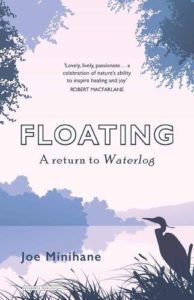
Floating by Joe Minihane
Joe Minihane is a freelance journalist based in Brighton. Floating: A Life Regained, the story of his attempts to recreate Roger Deakin's seminal Waterlog in a bid to conquer anxiety, is his debut memoir. Joe spent two and a half years swimming in the rivers, lakes, lidos and bays of the UK in an attempt to soothe his troubled mind and find a way of taking the calm he felt in the water out into his day-to-day life.
www.amazon.co.ukTrending
Masculinity 5 days ago
Sport 1 week ago
Health 1 week ago

Join The Book of Man
Sign up to our daily newsletters to join the frontline of the revolution in masculinity.



